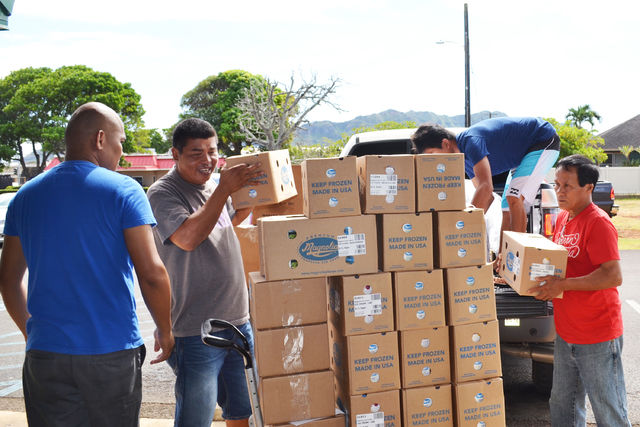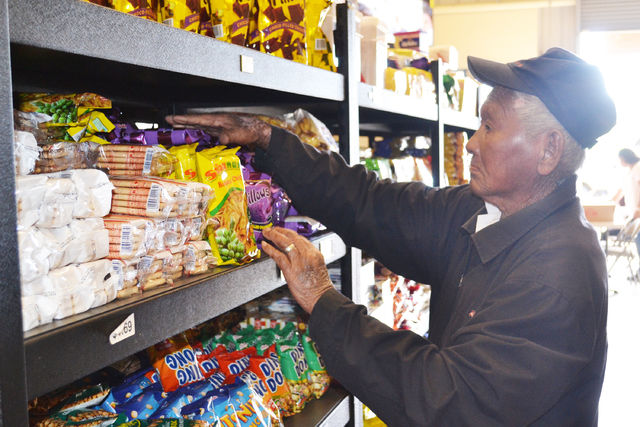LIHUE — Filipino business store owner Patricia Alicante says she is ready to travel to the Philippines. “We always go about once a year,” she said. “It’s OK. We’re on the north side.” She isn’t concerned about the safety of
LIHUE — Filipino business store owner Patricia Alicante says she is ready to travel to the Philippines.
“We always go about once a year,” she said. “It’s OK. We’re on the north side.”
She isn’t concerned about the safety of her family on their upcoming winter trip after outspoken Philippine President Rodrigo Duterte announced “a separation of foreign policy” with the United States recently.
Other members of the Kauai Filipino community have changed their travel plans.
“I’ve never been to the Philippines, (and) I don’t think I’m going now because of this incident,” said Bobby Ayonon, Kauai Filipino Chamber of Commerce president and owner of Kauai Air Conditioning. “We were going to the Philippines in February with the Honolulu Filipino Chamber … but why should I support a country when they don’t want us there?”
Duterte sparked diplomatic alarm when he announced during a state visit to Beijing last week his “separation” with the United States. Upon returning home the next day, Duterte said he did not mean he was severing diplomatic ties with Washington but only wanted to end a foreign policy that’s overly oriented toward the U.S.
Duterte’s administration, however, has not formalized his public declarations to remove U.S. counter-terrorism forces from the volatile southern Philippines and stop large-scale joint exercises involving American forces, creating confusion among even his Cabinet officials.
According to the 2000 U.S. Census, 275,728 people in the state identified themselves as Filipino or part Filipino — that makes up about 23 percent of the population.
On Kauai, over 21,000 people identified themselves as Filipino, according to a U.S. Census report. Recent Census data suggests Kauai County estimates the island has a population of 71,735.
Not all from the Filipino community are against Duterte. Most of her customers, Alicante said, support the Philippine president.
“Some are from the same place where Duterte is from,” she said, “Of course they’re proud of him. Some are not for Duterte, but most of (my customers) like him.”
Norma Doctor Sparks, vice president of the Kauai Filipino Chamber of Commerce, is concerned with potential social ramifications that may transpire because of the president’s announcement.
“What I’m really concerned of is that kind of division between the Philippines and the United States because we have a lot of Filipino Americans here in the U.S.,” she said. “There’s also a lot of Filipino immigrants who are on visas as well working here, and there’s also, of course, Filipinos themselves working for U.S. companies.”
As a former attorney general deputy, Doctor Sparks said she’s not clear as to what the president is thinking about on his war on drugs.
“At least from the stories that come out from the Philippines that (the media) talk about how people have been identified as drug suspects and been murdered before they were charged or even given the opportunity to stand trial,” she said.
Travel security is another issue, she said.
“It was interesting when President Marcos went into power. My mother felt really comfortable in the security and how safe she felt,” she said. “I understand some of what President Duterte wanted to have — needing to have security for everyone — but I’m just concerned, at least of the way it’s being reported, that he’s doing it.”
Randall Francisco, Kauai Filipino Chamber of Commerce executive director and third-generation Filipino American, said he’ll continue to visit the Philippines but is troubled by Duterte’s comments.
“After his statements were made, he appears to be clarifying his statements,” Francisco said. “It’s a concern because of his double meaning. I’m quite sure for many on Kauai and in the country, (Filipino Americans) are feeling confused at times. His true intent seems to be unclear.”
•••
The Associated Press contributed to this story.



